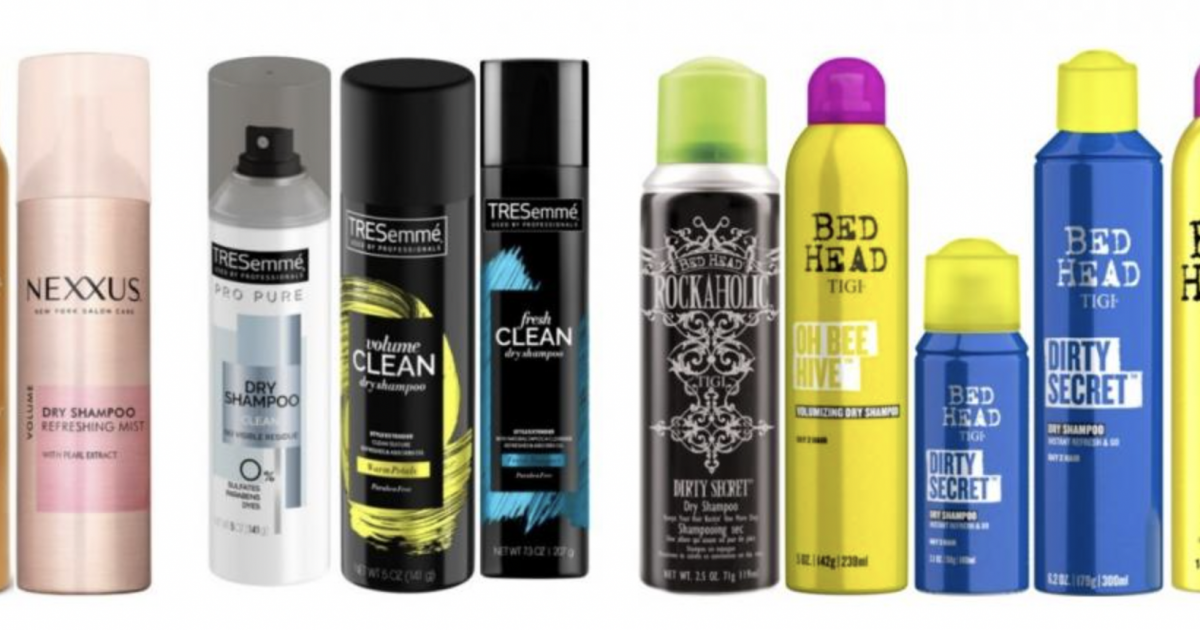Learning about Benzene
- Unilever United States recently released a voluntary product recall on a number of dry shampoo aerosol products produced prior to October 2021 from popular companies like Dove, Nexxus, Suave, TIGI (Rockaholic and Bed Head) and TRESemmé due to potentially elevated levels of the human carcinogen benzene.
- Benzene is a colorless or light yellow liquid that can form naturally or be produced by human activities, according to the Centers for Disease Control and Prevention (CDC). The chemical is a known carcinogen, meaning its link to cancer, particularly blood cancers, has been established.
- Experts have told SurvivorNet that benzene levels likely become an issue after repeated exposure, but that multiple environmental and genetics factors can lead to cancer, with benzene exposure only potentially playing a role in this dynamic. The Emphasis is on potential risk. How much risk is still somewhat unclear without hard, peer reviewed data on actual direct causation.
The company Unilever United States recently released a voluntary product recall on a number of dry shampoo aerosol products produced prior to October 2021. The brands effected include Dove, Nexxus, Suave, TIGI (Rockaholic and Bed Head) and TRESemmé due to potentially elevated levels of the human carcinogen benzene.
Read MoreBelow is a list of the recalled products, but visit this page for a list that includes the specific consumer UPC and lot codes related to the recall:
- Dove Dry Shampoo Volume and Fullness
- Dove Dry Shampoo Fresh Coconut
- Dove Dry Shampoo Fresh and Floral
- Dove Dry Shampoo Ultra Clean
- Dove Dry Shampoo Invisible
- Dove Dry Shampoo Detox and Purify
- Dove Dry Shampoo Clarifying Charcoal
- Dove Dry Shampoo Go Active
- Nexxus Dry Shampoo Refreshing Mist
- Nexxus Inergy Foam Shampoo
- Suave Dry Shampoo Hair Refresher
- Suave Professionals Dry Shampoo Refresh and Revive
- Tresemme Dry Shampoo Volumizing
- Tresemme Dry Shampoo Fresh and Clean
- Tresemme Pro Pure Dry Shampoo
- Bed Head Oh Bee Hive Dry Shampoo
- Bed Head Oh Bee Hive Volumizing Dry Shampoo
- Bed Head Dirty Secret Dry Shampoo
- Bed Head Rockaholic Dirty Secret Dry Shampoo
What Is Benzene?
Benzene is a colorless or light yellow liquid that can form naturally or be produced by human activities, according to the Centers for Disease Control and Prevention (CDC). The chemical is sometimes released into the air through automobile emissions or the burning of coal or oil.
It is also used in the manufacturing of some plastics, rubbers, dyes, detergents, and drugs.
The chemical is a known carcinogen, meaning its link to cancer, particularly blood cancers, has been established. The FDA allows the chemical to be used in drug manufacturing only if the use is unavoidable and the drug product makes a "significant therapeutic advance." If the chemical must be used, benzene levels should be limited to 2 ppm "unless otherwise justified," according to FDA regulations.
Do Benzene and Formaldehyde Cause Acute Myeloid Leukemia?
Dr. Jay Shah, cancer care program leader for urologic oncology at the Stanford Cancer Center, previously told SurvivorNet that benzene levels only become an issue if an individual is frequently exposed to a product.
"While a growing body of medical research shows that chemicals in your environment can slightly increase your risk of getting cancer, it's unlikely that occasional exposure, like getting your nails or your hair done, will do much harm," Dr. Shah explained.
This becomes more of a concern with daily-use products such as: shampoo; conditioner; face wash, lotion or serum; make-up; soap; or deodorant.
Dr. Shah pointed out that data suggests that individuals who frequently use a product containing a cancer-causing chemical do have a greater risk of being diagnosed with the disease.
"Hairdressers who handle a lot of hair dyes are historically known to have a higher risk of developing bladder cancer," Dr. Shah gave as an example.
In addition to frequent use, genetics can also play a role in determining a person's risk factors.
Dr. George Yaghmour, assistant professor of clinical medicine at USC Keck School of Medicine, previously told SurvivorNet that products with benzene can be a "driving factor" that impacts those who are already at risk of developing cancer due to a genetic predisposition.
"We don't believe that there are factors that cause leukemia, but we believe that there are mutations accumulated from different environmental factors, on top of predisposing genes … that turn into leukemia," Dr. Yaghmour explained.
Signs & Symptoms of Benzene Exposure
People who breathe in high levels of benzene may develop the following signs and symptoms within minutes to several hours:
- Dizziness
- Drowsiness
- Rapid or irregular heartbeat
- Headaches
- Tremors
- Confusion
- Unconsciousness
- Death (at very high levels)
Eating foods or drinking beverages containing high levels of benzene can cause the following symptoms within minutes to several hours:
- Vomiting
- Irritation of the stomach
- Dizziness
- Sleepiness
- Convulsions
- Rapid or irregular heartbeat
- Death (at very high levels)
What Should Consumers Do with Recalled Products?
People who purchased the recalled products should stop using them immediately and visit UnileverRecall.com for reimbursement instructions.
Additionally, if any person using these products believes they have had or are having an adverse reaction, they should contact their physician or a healthcare provider.
Those individuals may also reach out to FDA's MedWatch Adverse Event Reporting program online, by calling to request a form or downloading a pre-addressed form to send via regular mail or by faxing the agency at 1-800-FDA-0178 should they wish to report an adverse reaction or any general quality problems with the recalled products. Individuals can contact the FDA by calling 1-800-332-1088.
Contributing: SurvivorNet staff reports
Learn more about SurvivorNet's rigorous medical review process.

